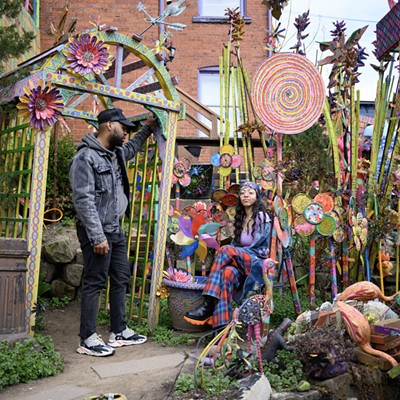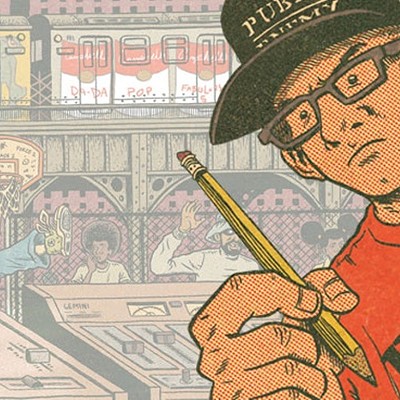"They take everything out equally," Palmer says. "It still takes a couple of weeks for a musician to adjust to playing with them in, but they're much better."
Bethany Berkstresser, of local indie-pop band Balloon Ride Fantasy, had her hearing checked at age 23 after years playing in a loud prog-rock band. "You don't think about it when you're young — you've never had any experience, you've never read anything about it. I think when I read Scar Tissue, by Anthony Keidis, is when I first became aware that you can develop problems later in life," she says. In that 2004 memoir, the Red Hot Chili Peppers frontman recounts his developing issues with tinnitus.
Berkstresser and her bandmate and boyfriend Phil Conley both had themselves fitted for custom earplugs. Custom-fitted plugs are the high-end products of the hearing-protection world, generally costing hundreds of dollars. At the Musicians' Hearing Center, musicians can be fitted for custom plugs for $300. (A hearing test, necessary before any plugs are made, is generally covered by most insurance plans, Palmer says, but the plugs themselves are not.)
Berkstresser feels the investment was worth it for custom plugs, because her role in her current band is supplying harmony vocals; with cheaper plugs, it's tough to hear well enough to sing harmonies on pitch.
Fazio, who deals with both tinnitus and some perceived minor loss of hearing, uses plugs from Etymotic Research that are generally more in the $10-20 range. Palmer recommends that type of earplug — standard in fit, but geared toward musicians — for those not ready to drop the money for custom plugs.
"Using the foam earplugs, you fail to hear intricacies in the music," Fazio says. With the musician's plugs, more of the music comes through clearly.
Beyond musicians, Palmer notes that plenty of peripheral people need to think about hearing protection: sound engineers, recording engineers, lighting techs at live venues, even bartenders and wait staff at clubs. "Bartenders not only deal with the loud music; they have to strain to hear what everyone is ordering," she notes.
Musicians who have played for years with little or no hearing protection may think it's a lost cause; not so, says Palmer: "There's a level of hearing loss once you get below it, it's harder and harder for us to help you, and you have much more difficulty. Even if you've lost quite a bit of hearing, it's never too late to protect what you've got."
For musicians who are concerned about their hearing — and that ought to be all of them — the Musicians' Hearing Center offers an opportunity to talk about solutions. The center sponsors a basic phone-based test (at 412-647-2400) to check for hearing deficiencies, and patients can schedule a hearing test at the center in Oakland, during which they can talk to doctors about their hearing-protection needs. (Hearing tests are available at other hearing centers that aren't necessarily just geared toward musicians.)
Both Berkstresser and Fazio agree that as musicians, it's important to take hearing seriously. "Don't worry about earplugs making you look silly," says Fazio. "Take it seriously. Appreciate the hearing you have."













